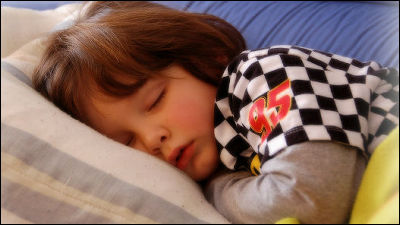What causes the 'second wind' phenomenon, where you feel excessively awake before going to bed and can't fall asleep?

It's normal to feel sleepy at the end of the day, but there are probably many people who suddenly feel a surge of energy in the evening or at night and can't fall asleep. This phenomenon, commonly known as the '
Why do we get a 'second wind' of energy at the end of the day? | Live Science
https://www.livescience.com/health/sleep/why-do-we-get-a-second-wind-of-energy-at-the-end-of-the-day
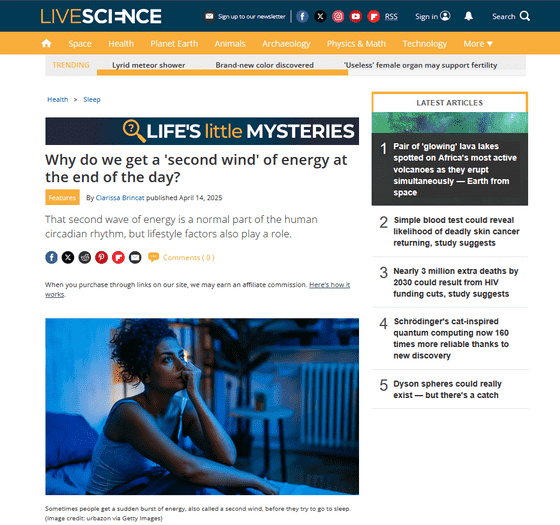
According to Roxanne Pritchard, a professor of psychology and neuroscience at the University of St. Thomas in the US, the second wind occurs when the body's internal wakefulness signals are still high and the effects of sleep signals, such as the hormone melatonin, which promotes sleep, are still incomplete.
This is thought to be because it was evolutionarily advantageous to be able to do some work before going to bed, and Pritchard said, 'The second wind may have helped our ancestors to perform important tasks such as preparing dinner or finding a safe place to sleep.'
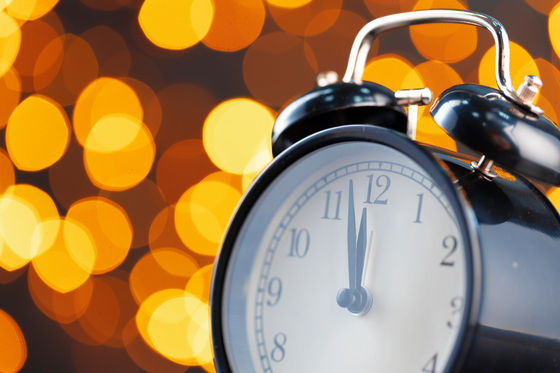
The length of the second wind varies from person to person, with night-type people tending to have a longer wakefulness zone than morning-type people, while morning-type people tend to have a shorter second wind and fall asleep relatively quickly.
In addition to your natural circadian rhythm and constitution, the surge of energy that occurs during the second wind can be even more pronounced depending on your lifestyle and physical condition.
'Worrying, anxiety, working late at night, using social media, and stimulating activities can trigger the release of stress hormones like cortisol and epinephrine, which can increase alertness,' said Chris Allen, a board-certified sleep physician at Aeroflow Sleep, a medical device company that specializes in sleep apnea.
In particular, a 2022
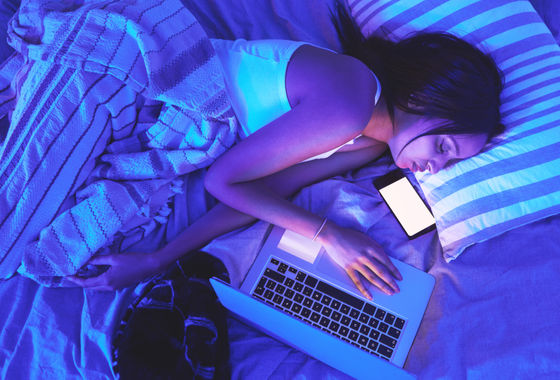
Another common cause of being wide awake before bedtime is 'revenge waking.' 'People often engage in mentally stimulating activities in the hours before bedtime, which increases alertness,' Allen said.
So what to do if you find yourself awake in the middle of the night? Experts recommend getting up rather than tossing and turning while fighting the surge of energy. 'As a rule of thumb, reducing stress through light to moderate exercise or addressing stressors head-on may help you fall asleep later in the night,' says Pritchard.
However, if you are up and about at night, you may want to minimize lighting or, if possible, dim the lights to a warmer color. Two studies published in
However, both studies were small, so larger studies are needed to be more definitive, and some experts argue that while red light is less disruptive than other types of light, it doesn't necessarily promote sleep.
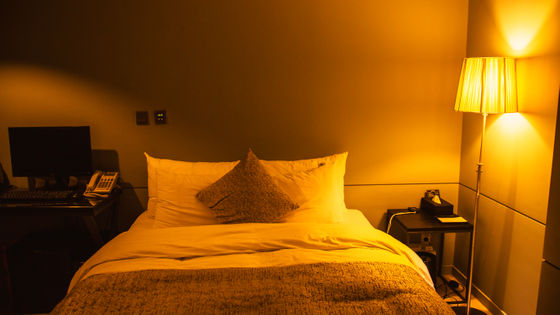
And the best way to combat second wind is to avoid being wide awake at bedtime: 'Going to bed at the same time every day and waking up at the same time every day helps regulate your body clock and reduces the second wind phenomenon, and research supports this,' says Allen.
To stick to a sleep schedule, limiting light exposure close to bedtime can help, as well as developing a relaxing routine before bed, since your sleep schedule is influenced not only by exposure to light but also by external behavioral cues.
If you try these measures and still find yourself feeling high right before bed, Pritchard recommended it may be worth consulting a sleep specialist to see if you have a possible sleep disorder.
Related Posts:
in Science, Posted by log1l_ks

